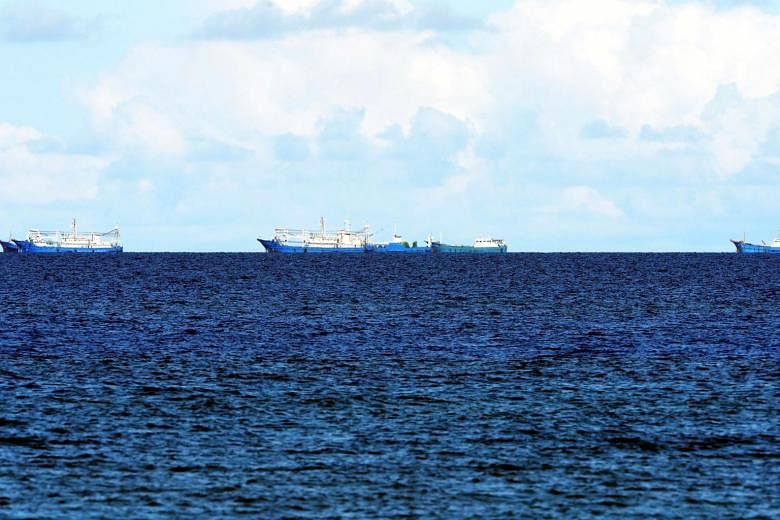John Nery
MANILA (PHILIPPINE DAILY INQUIRER/ASIA NEWS NETWORK) - This could be the question that will haunt us in our old age. Supreme Court Justice Antonio Carpio asked the Meet Inquirer Multimedia forum on Monday to imagine that moment, years from now, when our children and grandchildren will sit us down and ask us: "Who lost the West Philippine Sea to China?"
It is our "civic duty," Carpio said, to raise the alarm today about the imminent loss of our territory and our waters, to forge a national consensus on what needs to be done, and to defend the West Philippine Sea.
What is at stake in the dispute with China, and in Beijing's continuing disregard of the July 12, 2016, arbitral tribunal ruling?
In his "The South China Sea Dispute: Philippine Sovereign Rights and Jurisdiction in the West Philippine Sea" (the e-book is available online, free of charge), Carpio added up the costs: The Philippines stands to lose "about 80 per cent" of its exclusive economic zone ("including the entire Reed Bank and part of the Malampaya gas field") and "100 per cent" of its extended continental shelf (about 150,000 square kilometers of maritime space).
Altogether, China's claim to most of the South China Sea "encroaches on over 531,000 sq km of Philippine EEZ and ECS, including all the fishery, oil, gas, and mineral resources found within this vast area, which is larger than the total land area of the Philippines …"
Carpio does not mince words: "This Chinese aggression is the gravest external threat to the Philippines since World War II."
Bill Hayton, the BBC journalist who is a leading expert on the South China Sea disputes, recently tweeted a link to a new article in the "Journal of Modern Chinese History."
"The Origins of the South China Sea issue" is by Li Guoqiang, who is identified in the journal as "vice director of the Institute of Chinese Borderland Studies of the Chinese Academy of Social Sciences." Perhaps not coincidentally, CASS publishes the journal.
Hayton's one-tweet review is brutal: "Li Guoqiang demonstrating the intellectual bankruptcy of official Chinese history of the South China Sea. 'Nonsense on stilts'."
He points to his "favourite" among Li's "ridiculous statements": "For example, in 1791, British Captain Henry Spratly 'discovered' Mischief Reef in the Nansha Islands and named it after his German crewman Mischief."
Set aside the mention of Mischief (the claim that the reef was named after a "German" crew member named Heribert Mischief seems dubious) or of the use of "Henry" (in fact, Captain Spratly's name was Richard). But the man who gave his name to the Spratly Islands was born in 1802.
This ridiculousness is repeated in a propaganda website like www.spratlys.org ("Spratly Islands-China's precious pearls in the South Sea!"), where the "timeline" asserts that "Captain Spratle arrived in the group and named the islands by his name" in 1791-11 years before he was born!
This is the kind of thinking that supports the aggressive Chinese posturing in the South China Sea.
Just imagine if, rather than merely acknowledging Chinese military might, President Duterte's scathing tongue were directed at this and other fallacies. Mischief abroad!

